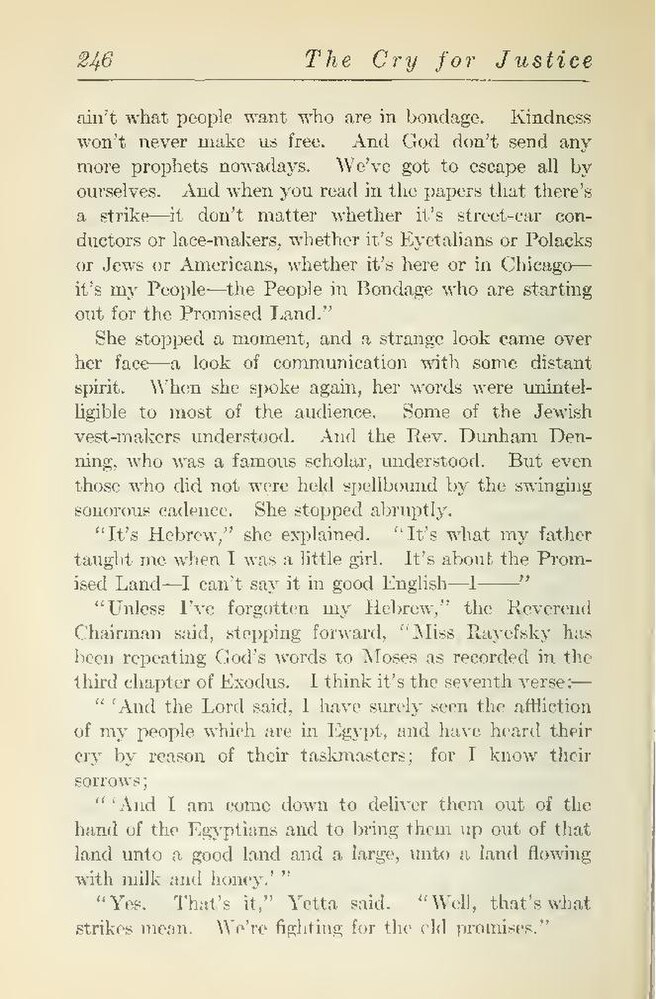ain't what people want who are in bondage. Kindness won't never make us free. And God don't send any more prophets nowadays. We've got to escape all by ourselves. And when you read in the papers that there's a strike—it don't matter whether it's street-car conductors or lace-makers, whether it's Eyetalians or Polacks or Jews or Americans, whether it's here or in Chicago—it's my People—the People in Bondage who are starting out for the Promised Land."
She stopped a moment, and a strange look came over her face—a look of communication with some distant spirit. When she spoke again, her words were unintelligible to most of the audience. Some of the Jewish vest-makers understood. And the Rev. Dunham Denning, who was a famous scholar, understood. But even those who did not were held spellbound by the swinging sonorous cadence. She stopped abruptly.
"It's Hebrew," she explained. "It's what my father taught me when I was a little girl. It's about the Promised Land—I can't say it in good English—I"
"Unless I've forgotten my Hebrew," the Reverend Chairman said, stepping forward, "Miss Rayefsky has been repeating God's words to Moses as recorded in the third chapter of Exodus. I think it's the seventh verse:—
"'And the Lord said, I have surely seen the affliction of my people which are in Egypt, and have heard their cry by reason of their taskmasters; for I know their sorrows;
"'And I am come down to deliver them out of the hand of the Egyptians and to bring them up out of that land unto a good land and a large, unto a land flowing with milk and honey.'"
"Yes. That's it," Yetta said. "Well, that's what strikes mean. We're fighting for the old promises."
